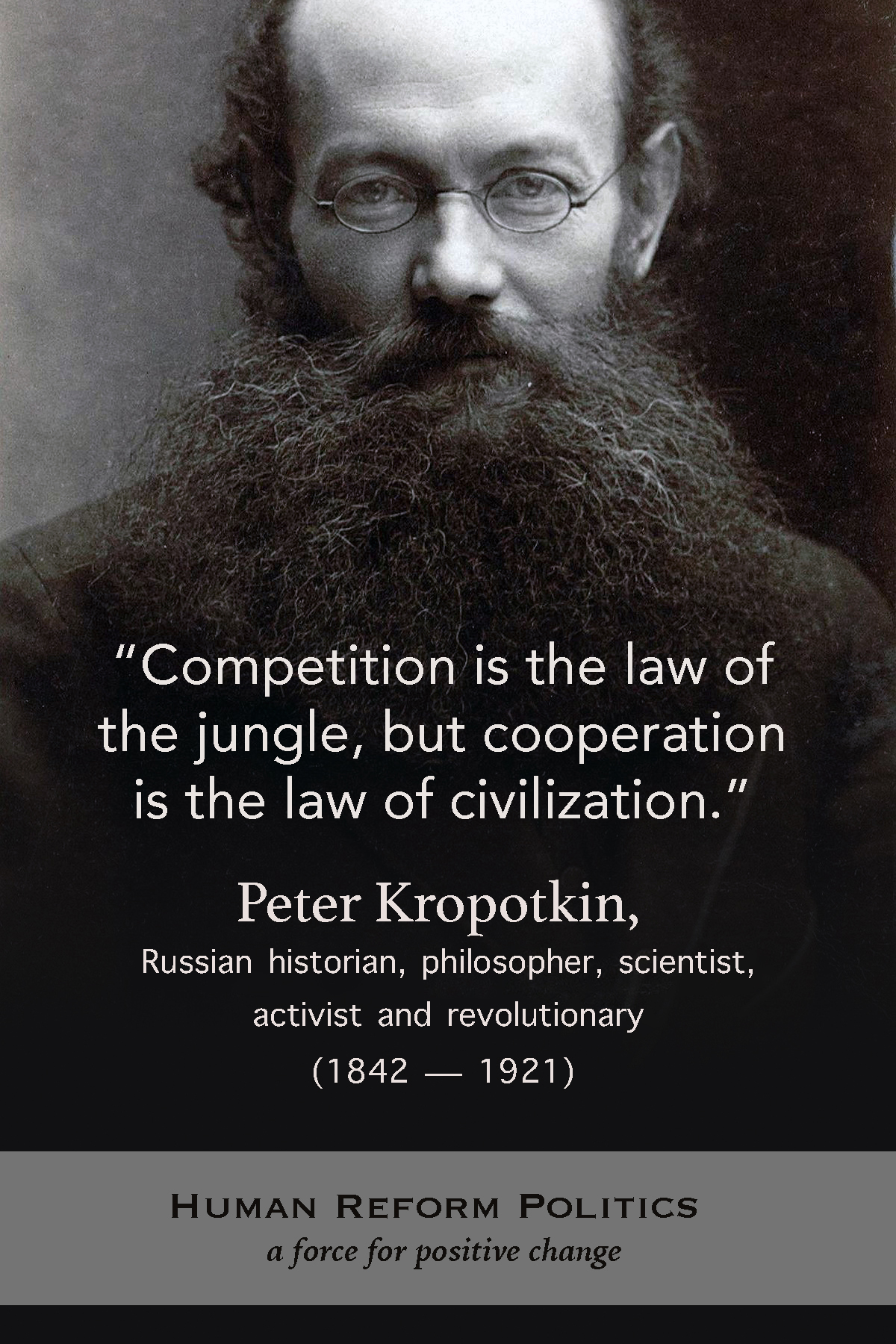On Cooperation

Though you can still find people with ideas like these as we make our way through the 21st Century, they are considered radicals.
These are concepts that are built around the notion of interpersonal cooperation, which is not the way the vast majority of our modern civilization functions. Our lives today are governed largely by the broad principles of economics, especially now that the U.S. Supreme Court has decided that corporations have the same right to free speech under the First Amendment as people do. Thus we have our lawmakers doing the bidding of business entities that are worth many millions of times that of the average voter.
